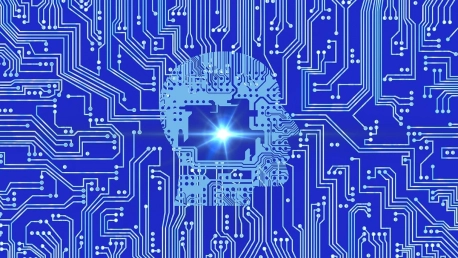Artificial Intelligence (AI) has moved from a speculative vision to a pivotal tool in Human Resources (HR). It’s transforming HR by optimizing procedures, enhancing employee engagement, and remolding HR positions. As we approach 2024, AI’s impact is evident in areas like AI-driven recruiting processes, AI-empowered talent management systems, and sophisticated AI analytics in HR operations.These advancements facilitate more efficient decision-making and personalized employee experiences, alongside predictive analytics that help in understanding and managing employee lifecycles better. AI also automates mundane tasks, enabling HR professionals to focus on more strategic initiatives. From streamlining candidate screenings to providing insights into workforce dynamics, AI is at the forefront of revolutionizing HR, promising a more data-driven and efficient future for the sector. By amalgamating human intuition with AI’s capabilities, HR is set to embark on a new era of workforce management.
Revolutionizing Recruitment with AI
AI has modernized the hiring landscape, eliminating the manual toil of sifting through countless resumes to identify the ideal candidates. Algorithms can now efficiently parse through data, highlighting applicants whose skills and experiences best match job descriptions. Virtual assistants and chatbots streamline the initial applicant engagement, allowing round-the-clock interaction and quick, accurate responses to candidate inquiries. Perhaps most critically, AI is instrumental in diminishing human biases that historically have skewed the recruitment process. By offering an unbiased assessment based on defined criteria, AI facilitates a level playing field, ensuring the best candidates advance based on merit.Beyond basic tasks, AI digs into the predictive aspects of hiring, utilizing historical data to forecast the suitability of a prospect for a role. Such predictive analytics can suggest which candidates are likely to succeed or stay long-term with the company, thus refining the quality of new hires even before the first interview.
Personalizing Talent Management through AI
In the domain of talent management, AI’s impact is multifold. Traditionally, managers gauged team performance and training needs largely based on intuition and limited datasets. Today’s AI talent management tools, however, offer personalized skill assessment that aligns with organizational goals and employee aspirations. Employees now receive custom development plans based on big data analysis, ensuring training is relevant and effective. Performance management has also seen a technological shift, with AI providing leaders granular insights into team dynamics and individual productivity.This personalized approach serves to elevate the employee experience, enhancing engagement by acknowledging and fostering each team member’s unique talents. Such investment in employee development invariably increases retention, by demonstrating a clear path for career advancement within the organization and ensuring that employees’ potential is maximally realized.
Enhancing HR Analytics with AI
AI’s capacity to process and analyze vast amounts of data is revolutionizing HR analytics. With its ability to synthesize complex patterns and provide strategic insights, HR teams are now better equipped to make informed decisions about workforce management and planning. These analytics span from turnover predictions and hiring needs to intervention strategies that preemptively address potential organizational issues.The insights derived from AI-driven analytics enable HR to shift from reactive problem-solving to a proactive, strategic role within the company. Resource allocation is optimized, as organizations can better predict and plan for future needs. By leveraging these data-driven insights, HR professionals can contribute significantly to the overall strategic direction and success of the company.
AI: An HR Partner, Not a Replacement
AI has grown to be a crucial ally in human resources, tasked with streamlining routine, data-heavy jobs. This integration is not about replacing human capabilities but enhancing them. HR teams are thus empowered to dive into deeper strategic pursuits that demand a human touch, such as discerning empathy, making ethical decisions, and fostering interpersonal connections. This fusion of AI with human expertise brings out the best in both: while artificial intelligence handles the predictable patterns and administrative chores, human professionals apply their irreplaceable insight and creativity to more nuanced aspects. The synergy between AI and HR doesn’t just improve efficiency; it creates a harmonious space where technology supports human strengths, ensuring both the people behind the tech and the technology itself can achieve their maximum potential.
The Positive Ripple Effects of AI in HR
The ripple effects of AI’s integration into HR extend beyond operational efficiencies. As processes become more efficient and personalized, candidates and employees alike experience a heightened sense of value and investment in their professional journey. The tailored development, performance management, and nurturing company culture ultimately lead to higher job satisfaction and employee fulfillment. Adopting AI within HR practices signals to employees that the organization is committed to their growth and well-being, fostering loyalty and a positive work environment.By examining AI’s increasing role in HR, it becomes clear that AI is not merely transforming—it is establishing a new standard for the HR function. An era where HR practices are optimized, biases are reduced, and employees are accorded the individualized focus needed for them to excel. AI is shaping the future of HR practices, ensuring they are equipped to foster a dynamic, supportive, and effective workplace for the generation ahead.









